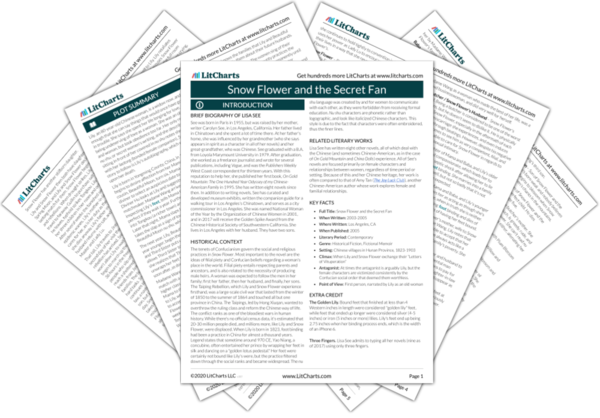This passage drives home the idea that Lily's worth is tied to her body. However, this possible worth is also tenuous, as many things can go wrong. Mama certainly means that Lily will bring a greater financial burden upon her family, even though she'll likely be worth more if things do go well. Lily also begins to suggest a link between being female, having worth, and experiencing violence. Foot binding is certainly an act of violence, but it, as well as these beatings from Mama, is described as being helpful and stemming from love.
